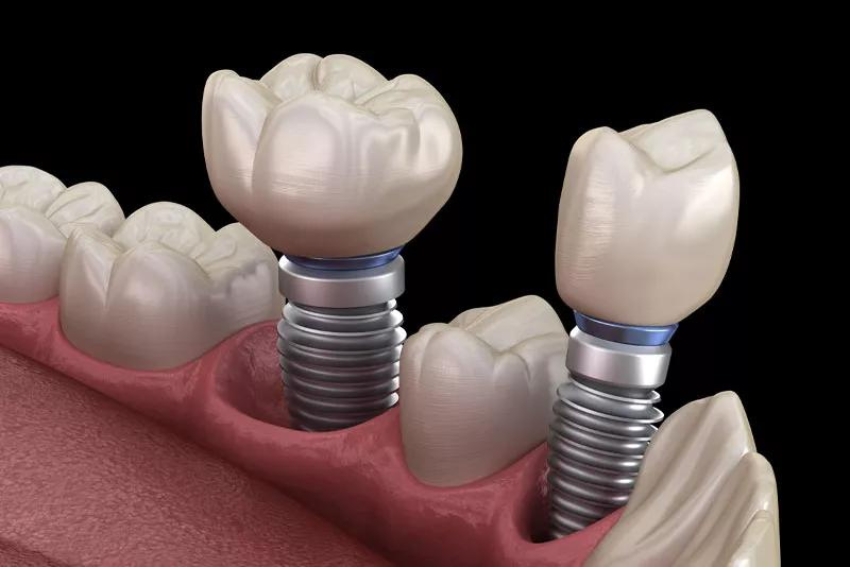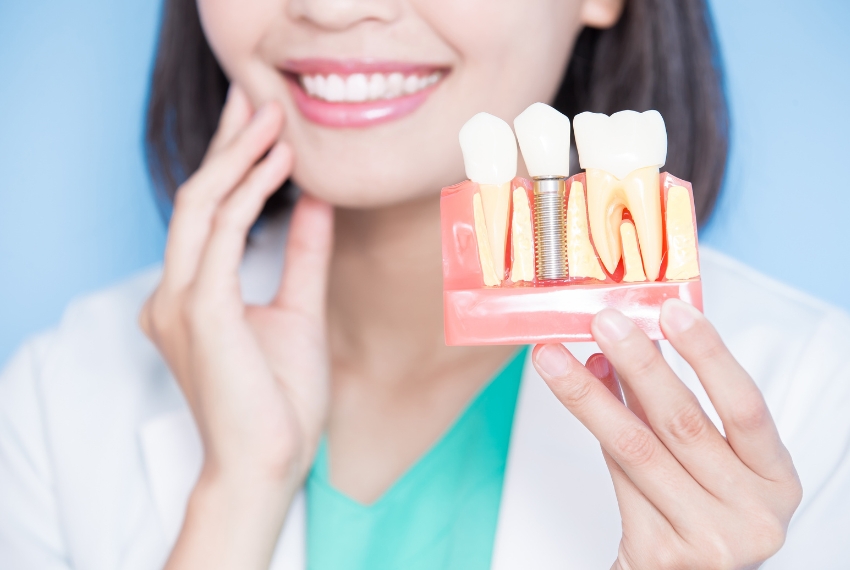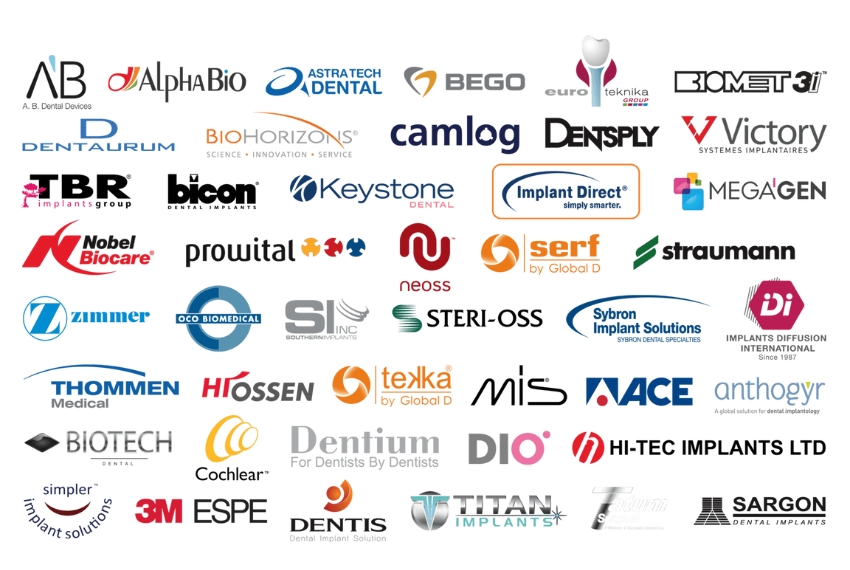
Titanium Implant
Dental implants can successfully restore your missing teeth or teeth that need to be extracted. In general, implants made of titanium improve your health and enhance your quality of life due to their high success rate, long lifespan, and aesthetic results. Advances in technology have allowed the discovery of new materials in the field of healthcare, and dental implants have also benefited from these developments. Today, two different materials are used as raw materials for implants:
• Titanium and its alloys
• Zirconium implants
Before choosing the most suitable material for your treatment, there are several important points to consider, such as advantages, disadvantages, cost, and physiological limitations.
What is a Titanium Implant?
Titanium implants, introduced in the 1960s, have been widely used due to their physical properties and durability. Over time, alloys have been developed by adding various elements such as aluminum, vanadium, and zirconium to increase the stability, strength, and lifespan of the implant material. Today, titanium implants are produced from six different alloys.
Typically, a titanium dental implant consists of two different components: the screw and the abutment. The implant screw mimics the function of the root of a natural tooth, while the abutment secures the crown onto the screw. This allows the patient to continue living with implants as if they were natural teeth after the treatment. Implants are often preferred for the following treatments:
• Tooth loss due to decay and infection
• Damages caused by accidents
• As an alternative to dentures
• Periodontal diseases
Comparison of Titanium and Ceramic Implants
In titanium dental implants, the process of the screw fusing with the bone, known as osseointegration, is more successful. The ability to adhere to the bone accelerates the implant healing process.
The strength and resilience of titanium have been well-known for many years. Issues such as implant fractures are much less common with titanium implants compared to ceramic implants.
Titanium is more cost-effective than ceramic implants, especially for treating front teeth. Ceramic implants do not have a metal reflection issue under the crown, which can occur due to thick gums or bone resorption over time.
Titanium is also a step ahead in terms of costs. Ceramic systems are more expensive than titanium, and they are also more prone to breakage, leading to higher maintenance costs.
Possible Side Effects of Titanium Implants
Dental implants themselves do not have long-term side effects. Although allergic reactions related to metals are among the most common side effects, especially in this type of treatment, allergies are rarely observed with titanium implants. People with metal allergies should consult a doctor before treatment. If the patient is at risk of titanium allergy, the choice of material can be made based on the allergy test results.
Another rare complication is titanium toxicity, which can cause bone infection and resorption. Some metabolic disorders and habits can affect implant healing.
Factors such as alcohol consumption, diabetes, and smoking can influence the success of implantation. The use of implants is safe for patients with controlled diabetes. It is essential to take complete care of oral hygiene, including regular teeth brushing and flossing after meals, to minimize side effects from dental implants.
What does the Titanium Implantation procedure involve?
The implantation process can vary for each patient, but typical treatment involves the following stages:
• Anesthesia: The dentist first numbs the area with anesthesia and places the implant screw into the jawbone.
• Osseointegration: After the integration process of the implant is complete, support components called abutments are attached to the screw. The abutment helps securely transfer chewing forces to the jawbone, fixing the restoration placed on it.
• Crown Placement: As the final step, your dentist attaches a crown onto the abutment. The crown resembles a natural tooth and serves as a covering for the remaining part of the implant.
Pain with Titanium Implants
Local anesthesia is applied to ensure you do not feel pain during the procedure. In some cases, general anesthesia may be preferred over local anesthesia. Pain after the placement of the implant screw can be easily managed with over-the-counter pain relievers.
Your doctor will provide you with care instructions for your new implants, including regular cleaning. In most cases, you can resume your daily activities within two days after the procedure.
Some brands of titanium implants have developed implants with special surfaces that make the postoperative period more comfortable. There is detailed information in the article we prepared about implant brands.
Price
Titanium implants are cheaper than ceramic implants since they have been offered on the market by hundreds of companies for many years. New technologies always require more scientific research and investments. Differences in price may arise depending on the number of treated teeth, your provider, and your location. Creating a treatment plan in the clinic will save you time.







